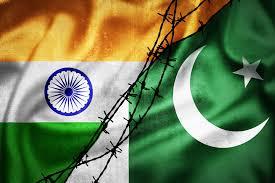
Introduction
Despite having access to a variety of foods, many people in Pakistan suffer from hidden hunger—a condition where the stomach is full but the body lacks essential nutrients. These nutrient deficiencies are often silent but can cause long-term health problems, especially in women, children, and the elderly. Understanding these deficiencies and how to correct them through food and lifestyle can significantly improve overall health.
What Causes Nutrient Deficiencies in Pakistan?
- Poor diet habits – Heavy reliance on roti, rice, and fried foods
- Lack of dietary diversity – Few fruits, vegetables, or whole grains
- Poverty and food insecurity – Limited access to nutritious foods
- Cultural eating patterns – Skipping breakfast, overeating at night
- Lack of awareness – Most people don’t know what nutrients they’re missing
Most Common Nutrient Deficiencies in Pakistan
1. Iron Deficiency (Anemia)
Who is affected: Women, children, and pregnant mothers
Symptoms:
- Fatigue
- Pale skin
- Weakness
- Shortness of breath
Sources of Iron:
- Red meat, liver, spinach (palak), lentils (daal), chickpeas (chana), dates (khajoor)
- Take vitamin C (like lemon or orange juice) with iron-rich foods to improve absorption
2. Vitamin D Deficiency
Who is affected: Urban population, women who wear full coverage clothing, elderly
Symptoms:
- Bone pain
- Muscle weakness
- Depression
- Frequent colds
Sources of Vitamin D:
- Sunlight (15–30 minutes a day)
- Fish, eggs, milk, fortified foods
- In severe cases, supplements may be needed (consult a doctor)
3. Calcium Deficiency
Who is affected: Women (especially post-menopause), children
Symptoms:
- Weak bones (osteoporosis)
- Muscle cramps
- Tooth decay
Sources of Calcium:
- Milk, yogurt, cheese
- Sesame seeds (til), leafy greens, almonds
- Calcium-fortified products
4. Vitamin B12 Deficiency
Who is affected: Vegetarians, older adults
Symptoms:
- Tingling in hands/feet
- Weakness
- Memory problems
Sources of Vitamin B12:
- Meat, eggs, dairy
- Fortified cereals
- B12 injections in severe cases (doctor’s recommendation needed)
5. Iodine Deficiency
Who is affected: People in remote or mountainous areas
Symptoms:
- Goiter (swelling in neck)
- Fatigue
- Mental slowing
Sources of Iodine:
- Iodized salt
- Fish and dairy
- Eggs
6. Zinc Deficiency
Who is affected: Children, people with poor diets
Symptoms:
- Poor wound healing
- Hair loss
- Low immunity
Sources of Zinc:
- Meat, nuts, whole grains
- Beans and seeds
7. Folate (Vitamin B9) Deficiency
Who is affected: Pregnant women, malnourished individuals
Symptoms:
- Anemia
- Birth defects in unborn babies
- Fatigue
Sources of Folate:
- Leafy greens, beans, citrus fruits
- Fortified bread and cereals
How to Prevent Nutrient Deficiencies
✅ Eat a Variety of Foods
- Include fruits, vegetables, meat, dairy, nuts, and whole grains in your daily meals.
✅ Cook Nutrient-Rich Meals at Home
- Avoid excessive frying and overcooking, which destroys vitamins.
✅ Use Fortified Products
- Choose iodized salt and fortified flour or milk where possible.
✅ Regular Health Checkups
- Blood tests can identify hidden deficiencies early on.
✅ Educate Your Family
- Teach children the value of balanced meals from a young age.
Final Thoughts
Nutrient deficiencies may not show immediate signs, but their effects can last a lifetime. In Pakistan, small dietary improvements and lifestyle changes can help fix these common deficiencies and lead to a healthier, more energetic life. Don’t just eat to fill your stomach—eat to nourish your body.